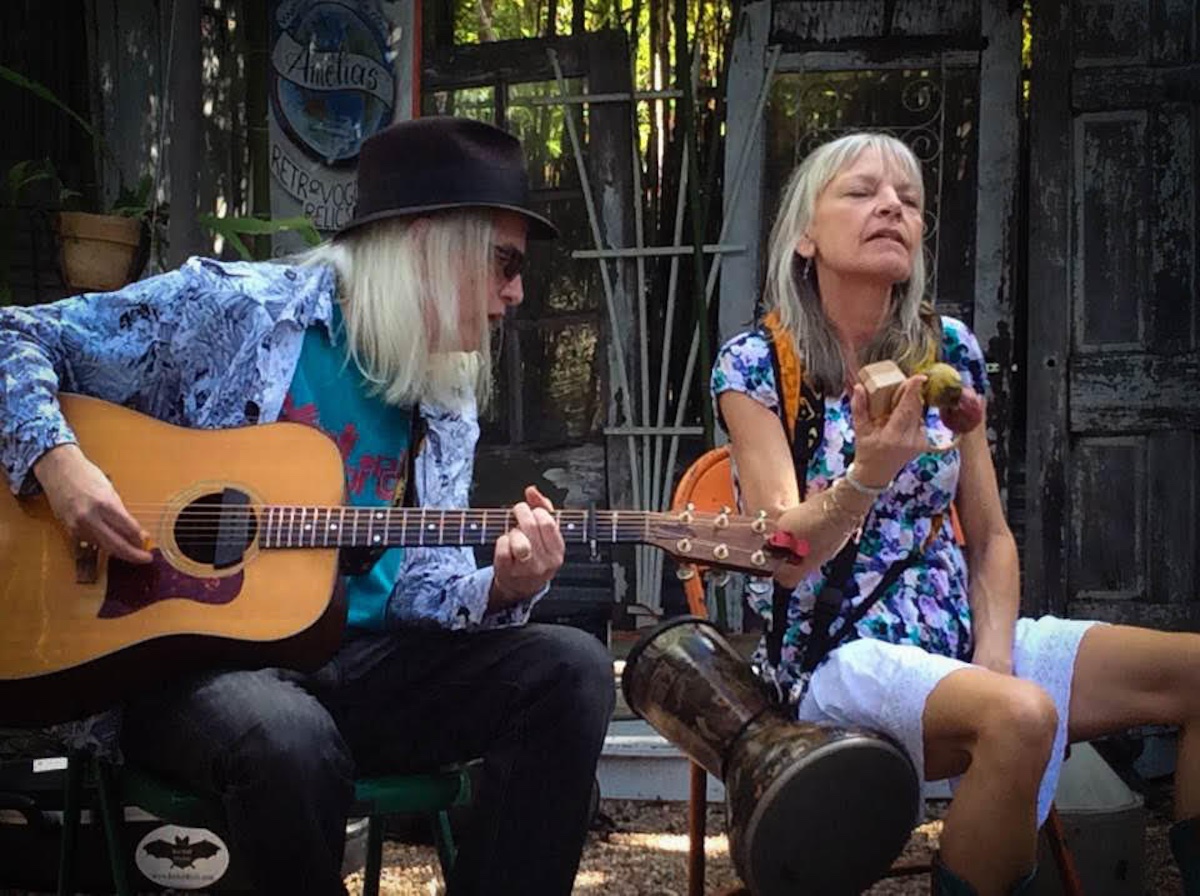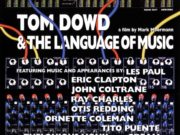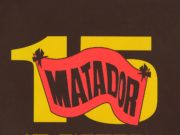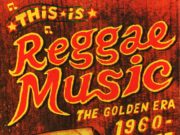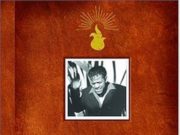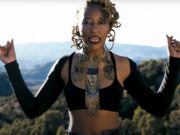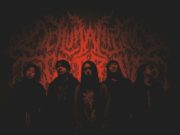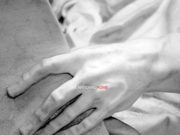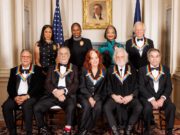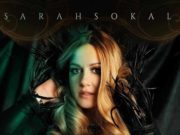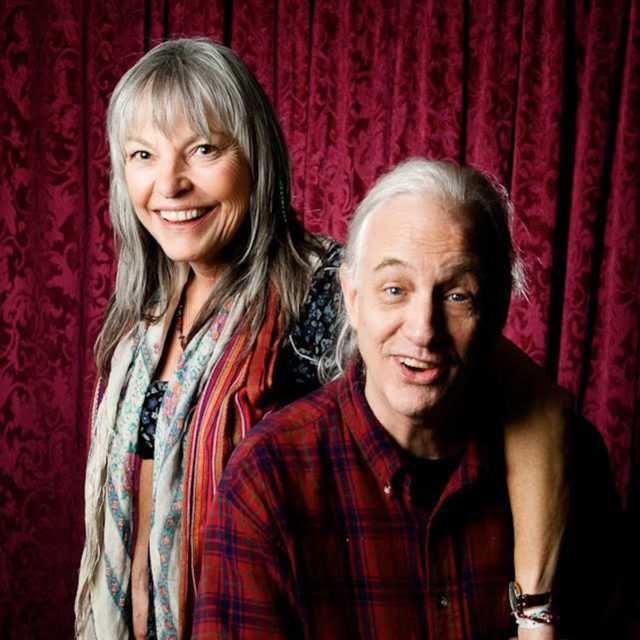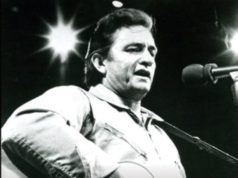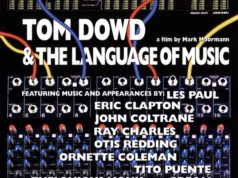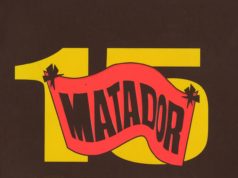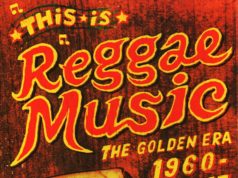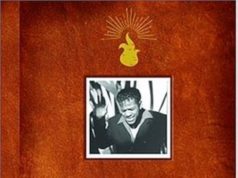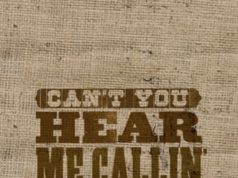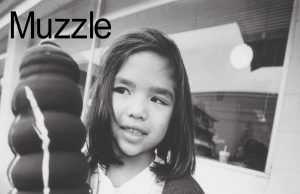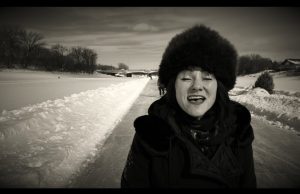When we last heard from Jim Patton and Sherry Brokus around these parts, they were looking for trouble in the mean streets of Harbortowne on the title track of their upcoming album. The Austin-via-Maryland roots duo are in a far better place on their latest single, the upbeat Jimmy Buffett-worthy winner Lottery. To celebrate their triumph, they sat down and made their way through my dumb questions. Talk about snatching defeat from the jaws of victory:
Introduce yourself: Name, age (feel free to lie), home base and any other details you’d care to share — height / weight / identifying marks / astrology sign / your choice:
I’m Jim Patton from Austin. We’ve lived here 30 years, but we’re originally from Maryland, where many of our songs still take place.
Hi, I’m Sherry Brokus. I grew up in Severna Park, MD, several blocks from the Severn River, where you find the sweetest blue crabs in the world — unless you’ve travel through the Chesapeake Bay into the Wye River.
What is your musical origin story?
SB: I went to Catholic school. When I was 12 years old, my favourite nun who worked with us in choir asked me to join three other female students to learn to play guitar and sing folk songs. Little did we know, we were starting the first “folk masses” in our church. I think initially, we thought it was a great way to get out of the academic classes and have fun. We continued to sing and play guitar in church every Sunday for the next two year.
JP: I didn’t learn to play or sing until I was 20 and had dropped out of college. The brother of one of my closest friends wanted me to join his band. So he taught me the three chords to Neil Young’s Helpless and I joined the band and never stopped playing.
What’s your latest project?
JP: An all-acoustic album, Harbortowne, based loosely on characters I’ve been writing about most of my life.
SB: We are currently recording more songs; and will see what colour paint brush of sound comes alive to pick the next record.
What truly sets you apart from other artists?
JP: I’ve always been totally committed to my art, which has led me in some interesting directions. I left a show a couple of years ago, and a woman stopped me to thank me for writing about “things that matter.”
SB: We never give up! We love being creative and can’t wait to see what evolves next. We also love to support other artists and are community oriented. For example, we host songwriters in the round at music conferences like Folk Alliance. In Austin, we’ve hosted songwriters at what we call NOTSXSW for the last 12 years.
How will my life improve by listening to your music?
SB: You will walk away feeling hopeful even in a world at times that feels there are so many pieces that are broken.
JP: I write about plans gone wrong, but also about those who continue on anyway.
Tell us about the first song you wrote or the first gig you played.
SB: I was 14 years old and wrote You Come to Me. Sister Fidelia decided it would be a wonderful song during the offertory in mass. Little did she know it was about a guy and his girl. Of course, I just said, “Well, thank you.”
JP: While I was still learning to play and sing, I began writing songs with my friend Gene Munger. He brought me up midway through his show at the local coffeehouse, supported me through three songs I sang, then whisked me off stage before people realized I couldn’t play or sing. It was a soft place to fall, and I’m forever grateful.
What is the best / worst / strangest performance you have given?
JP: We used to play the Omega Inn in Baltimore, run by the Greek Mafia. We had to move the pool table off the stage to play, and there was a velvet Elvis behind the band. One group that hung out there regularly called themselves the Fells Point Fuckups and lived up to their name. One night the FPFs were wilder than usual and began to harass Linda, our backup singer. Our guitarist put his guitar between her and them and trouble was on its way. As the room became rowdy, a cousin of the owner, sitting off to my right, kept saying “I’m weeth you Jeem!” while I tried to ignore him. When I finally looked over, he was waving a gun in the air, still saying: “I’m weeth you Jeem!” Surreal.
SB: Strangest: Playing a gig in a pizza parlor. When someone’s pizza was ready for pickup, they would announce over the intercom over a song.
What living or dead artist would you like to collaborate with?
SB: Neil Young, Carole King and Tom Petty.
JP: The Byrds, Gene Clark.
What artist or style of music do you love that would surprise people?
JP: I love Elvis Presley and garage-rock and ’60s pop rock and Neil Young and Neil Diamond and The Grateful Dead and Miranda Lambert and many others and I play them all together on shuffle in my database, side by side, and feel no pain.
SB: I grew up hearing Hank Williams, Skeeter Davis, The Monroe Brothers, early Elvis Presley, Tammy Wynette and Loretta Lynn at my maternal grandparents. But at my other grandparents, there was my grandfather singing like Bing Crosby.
What words do you hope people use when they describe you?
SB: Compassionate and energetic.
JP: We were playing a club in Houston where no one was in the room to see us, and there was a wedding in the room next door. This couple left the wedding, stood at the door and watched us then sat down and never left. Afterwards, they came up to talk to me and said: “We saw Robert Earl Keen play last night to a packed house, and you guys just blew him away tonight to nobody.” I could live with that.
What useful (or useless) skills do you have outside of music?
SB: I am a trained psychologist. I am semi-retired as a private therapist. It was a wonderful profession and challenging at times, but I could be a part of raising out daughter. Along with playing music, being self-employed allowed us to go on the road several times a year and not have to look for a paying gig upon return.
JP: I was a successful high-school distance-running coach for track and cross country for 20 years. It was the perfect part-time job for playing music. I also briefly taught creative writing and composition and I was good at both.
Tell us a joke.
JP: What’s the difference between a Domino’s pizza and an Austin singer-songwriter? A Domino’s pizza can feed a family of four. I first heard the great Jimmy LaFave say that on the radio, but I think it still holds up.
What do you collect?
SB: Cool seashells. On our honeymoon trip through North Carolina, Jim and I spent a week on the Outer Banks. I found a midsize conch shell that had been washed up on the beach so much that it had a coil opening to hang and make a necklace. I still have that same shell today; and wear it often.
JP: CDs, records, books and golden retrievers.
If money was no object, where would you live?
JP: In Austin, in the same house. I’ve pretty much had things work out to where I’m happy doing what I’m doing and where I’m doing it. The Austin songwriting community is supportive and raises the bar as to what I want my songs to be.
SB: I’d actually have several places to live. Somewhere on the ocean where one can swim and walk the beach for miles without seeing a lot of high-rise buildings and people. A place in N.Y.C. to take in the culture, play gigs, attend theater, etc. A place in the mountains of to hike, relax and where Jim could write while I paint or illustrate children’s books. And of course, Austin, as I love the friends and folks who come for what it is versus how they can change it to be like where they just left.
What would you like to be reincarnated as?
SB: A golden retriever. They are amazing kind and compassionate loving creatures.
What historical event do you wish you had witnessed?
SB: The signing of Roe v. Wade for woman’s reproductive rights.
JP: Paul McCartney first showing up at John Lennon’s gig. And the world changed.
What’s your idea of perfect happiness / total misery?
SB: Hard to say in a world that at times seems so broken. I guess to see everyone treated equally regardless of their differences; and have my family with me always.
JP: Total misery would be to do the same thing every day without end. I write every day, but it’s always different.
What are you afraid of?
JP: Mediocrity.
What would be the title of your autobiography?
JP: Fortunate Man. I have a song about it.
SB: I’ll Sleep when I’m Dead.
Who would play you in the movie of your life?
SB: Natalie Wood, but she’s dead.
JP: An unknown actor with the capability of showing how far I’ve come.
What’s your motto?
JP: I Never Give Up. I have a song about it.
What’s always in your refrigerator?
SB: Fruit, stuff to make an awesome salad and creamer for coffee.
JP: Many years ago it was beer; now it’s bottled water.
If you could change one thing about yourself, what would it be?
SB: To have never smoked cigarettes.
JP: I don’t really have much I’d change, but I’ve spent most of my life changing to get to where I am now.
What’s this silliest thing you believed as a child?
SB: That life would be fair for all.
JP: That if you work hard enough, all your dreams will come true.
What’s the worst job you ever had?
JP: I worked making candles at a Hare Krishna factory. The candles didn’t actually burn. The work was tedious, the bosses clueless. I was the only worker there never invited to their weekend feasts where they tried to recruit new members.
SB: Filing, as it’s boring and too simple. I only lasted three weeks. I felt like a rat in a maze.
What’s the best and/or worse advice you were given?
JP: Lloyd Maines, who produced one of our albums, told me not to work with dishonourable people. I’m not sure how that paid off career-wise, but I’ve sure been a lot happier.
SB: Pick a job, stick with it and you will have job security until you retire. BS! I’ve always believed that I am my own best security. I’ve been self-employed for over 35 years.
Watch Jim Patton & Sherry Brokus above, hear more from them below, and head on down to their website and Facebook.
